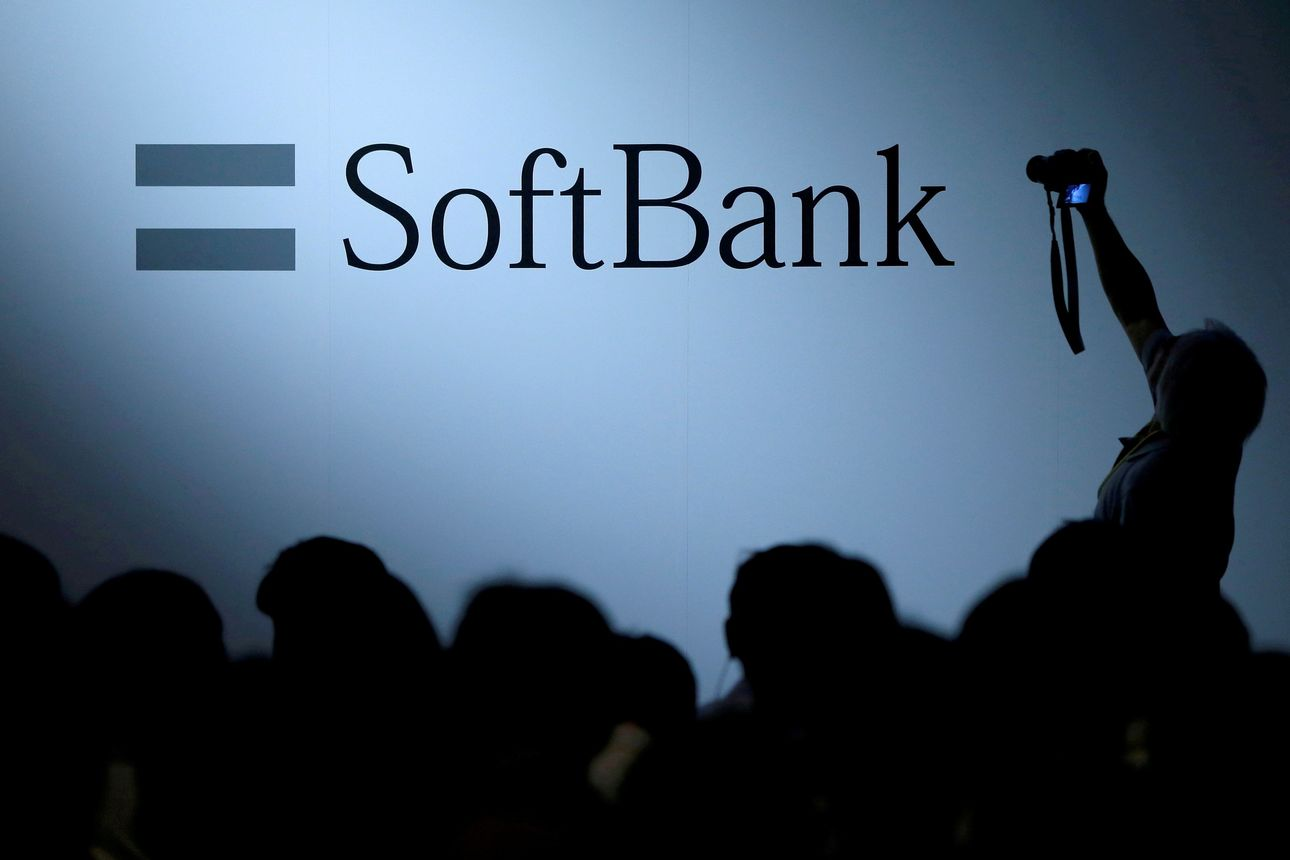Deal shows Japanese conglomerate’s need for cash and Apollo’s push into lending

SoftBank Group Corp. is finalizing a $4 billion loan from Apollo Global Management Inc. backed by SoftBank’s stable of technology-startup stakes, as the Japanese conglomerate seeks to weather turbulence in its portfolio.
The loan would be secured by SoftBank’s second Vision Fund, people familiar with the matter said. That roughly $40 billion pot includes stakes in 150 companies such as Indian e-commerce giant Flipkart; digital-banking startup Revolut; and Cameo, a site where celebrities sell personalized messages. SoftBank can use the money for a range of purposes, one of the people said.
The deal between the investing giants shows SoftBank’s ravenous need for cash and highlights Apollo’s push into lending, a territory traditionally dominated by banks.
Using borrowed money to make investments, rather than its own cash, would increase SoftBank’s profits if those bets turn out to be winners—and exaggerate losses if they sour.
SoftBank, whose holdings range from Japanese telecoms to European chip makers and Silicon Valley startups, has previously tapped its various holdings to borrow. Last spring, it arranged an $8 billion loan from a group of banks secured by its stake in Chinese e-commerce giant Alibaba Group Holding Ltd.
The initial Vision Fund, launched in 2016 with about $100 billion, was the biggest pool ever assembled for private investing. SoftBank spent it at a brisk pace—on everything from ride-hailing apps including Uber Technologies Inc. to indoor-farming startups and artificial-intelligence companies. It famously bet big on WeWork Inc., the co-working company that flamed out before its eventual listing.
The fund relied heavily on leverage, with $40 billion of its capital coming in the form of preferred stock carrying a 7% interest rate that is held by Abu Dhabi sovereign-wealth fund Mubadala Investment Co. and Saudi Arabia’s Public Investment Fund. The preferred stock has had the effect of magnifying wins and exacerbating losses.
The sequel fund was to be even bigger, but outside investors stayed away, disillusioned by bad bets such as WeWork and the chaotic way the Vision Fund had operated. SoftBank instead had to rely on its own cash to make investments, but it hasn’t stopped the fund from investing at a breakneck pace that shows no sign of letting up.
That cash has been in shorter supply. In November,SoftBank reported a $3.5 billion quarterly loss, hurt by China’s tech companies. Its stake in Chinese ride-hailing company Didi Global Inc.,for which it paid $12 billion, was valued at $7.5 billion. The stake in Alibaba, its largest holding, has declined by half over the past year. In total, the value of SoftBank’s assets fell by $54 billion over the previous quarter.
“We are in the middle of a blizzard,” SoftBank Chief Executive Masayoshi Son told reporters.
In another setback, the U.S. Federal Trade Commission this month sued to block Nvidia Corp.’s proposed takeover of SoftBank-owned semiconductor-design specialist Arm Holdings,arguing the deal is anticompetitive.
SoftBank has pledged to spend at least $9 billion buying back its own shares, which have lost about half their value since February. That buyback is on top of a $20 billion share-repurchase program completed earlier this year.
As of the end of September, SoftBank valued the second Vision Fund at $38 billion. Several of its holdings have recently gone public, including Chinese grocery startup Dingdong Ltd. and robotics company AutoStore Holdings Ltd.
Apollo and its insurance affiliate,Athene Holding Ltd., plan to lead the SoftBank loan, which would bear a mid-single-digit interest rate, joined by a group of investors including mutual funds, endowments and financial institutions, one of the people said.
Providing big loans is increasingly of interest to asset managers and private-equity firms. Last year,Apollo led a $4 billion bankruptcy loan for Hertz Global Holdings Inc. in partnership with Athene. In October, executives said Apollo was on track to make 30 loans of over $1 billion this year, up from one in 2019.
Apollo and some of its peers are often able to underwrite complex deals that a bank wouldn’t touch because they don’t fit neatly into an established category. While most private-equity funds use leverage to do deals, SoftBank’s Vision Fund invests in earlier-stage companies that typically aren’t producing cash flows to support debt.
Apollo, which expects to complete a deal in January to buy the piece of Athene it doesn’t already own, needs a constant supply of new debt deals in which to invest the insurer’s assets.
On Monday, Athene said it would buy a company that finances clean-energy projects at commercial properties, the latest in a string of similar deals for lending businesses it has struck this year. This summer, Apollo was the runner-up bidder for GreenSky LLC, a home-improvement and medical lender that is being sold to Goldman Sachs Group Inc.,people familiar with the matter said.

